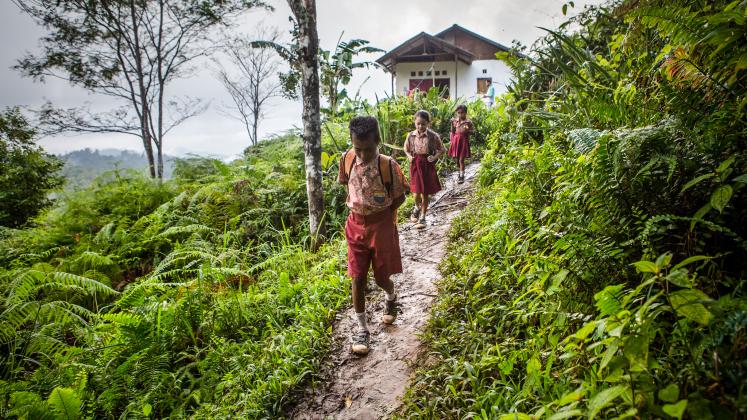Highlights
Increasing numbers of children and adults are displaced or migrating due to the impacts of climate change, affecting their right to education. Gaps in data at the intersection of climate-related risks and human mobility hinder governments from ensuring undisrupted and inclusive learning in the context of climate change.
Recommendations
Integrate education-in-emergencies data into education management information systems for crisis-sensitive education planning.
Explore utilization of innovative data sources to project potential mobility of learners, especially in disaster-prone areas.
Apply computational simulations to forecast education needs in the context of climate change and human mobility.
Develop capacity and a sense of ownership among education policymakers, planners and administrators to enhance use of data for climate resilience.



